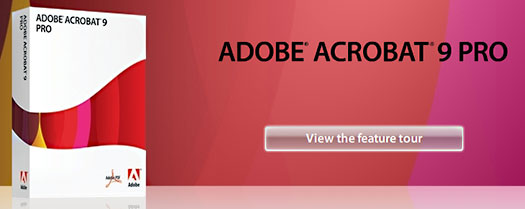

What this all means is that it can be easier to crack an Acrobat password, if the password is short and uses only upper- and lower-case letters. Pass-phrases can now be up to 4 times as long and support a greater number of international characters and symbols to be entered by keyboards around the world, which can greatly increase document protection when used properly.

In the permutation with repetitions formula used to calculate how many unique pass-phrases are possible, XY, Adobe has increased both X and Y in Acrobat 9. Acrobat 9 now supports pass-phrases of 127 Roman characters in length for 256-bit AES encryption and added support for unicode characters. Specifically, Acrobat 8 used pass-phrases of up to 32 Roman characters in length for 128-bit AES encryption. The Macworld article linked above says that, “the change in the underlying algorithm for Acrobat 9 makes cracking a weak password – especially a short one with only upper and lower case letters – up to 100 times faster than in Acrobat 8.”Īdobe, for their part, uses many words to defend the change:Īdditional security measures were added to the 256-bit AES implementation of password security in PDF, and Adobe Acrobat and Adobe Reader 9 both support these measures. Initial reports from a Russian company, Elcomsoft, who makes software that cracks Acrobat passwords (which shows that, already, they weren’t that secure…) has found that Acrobat 9 is easier to crack. Reports saying that Adobe Acrobat 9 has weaker password protection than the previous version of Acrobat have been confirmed, sort of, by Adobe. Security & Privacy + Software & Apps Adobe Acrobat 9 Offers Weaker Password Protection than Acrobat 8


 0 kommentar(er)
0 kommentar(er)
